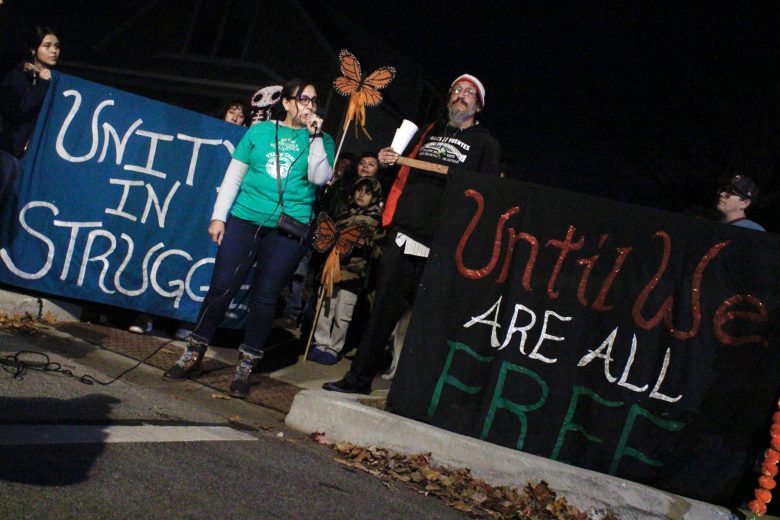Residents of Chicago and Los Angeles are coming together to form a multiracial coalition against U.S. Immigration and Customs Enforcement (ICE) actions. Following the detention of a South Los Angeles tamale vendor and her family in June, community members organized a march and vigil to protest these arrests and support affected families. This event marked a significant step towards building solidarity among diverse racial and ethnic groups in the face of increasing immigration enforcement.
Community Response and Solidarity Initiatives
The gathering in South Los Angeles was more than just a protest; it served as a rallying point for residents to express their grief and collective determination. Attendees laid flowers at a makeshift altar and called for transformation in their neighborhood. Organizer Enrique Gaspar from the nonprofit Community Coalition emphasized that “an attack against one of us is a strike against all of us,” highlighting the urgent need for community protection and resilience against ICE operations.
In the weeks that followed, residents have been meeting regularly to strategize on how to reclaim their streets and protect each other. Their initiatives include informing immigrants about their legal rights and providing mutual aid to families affected by raids. This grassroots mobilization reflects a broader trend in which neighbors from various backgrounds are stepping up to support one another as immigration enforcement continues to escalate.
According to reports from Block Club Chicago and LA Public Press, both communities are examining the historical context of state violence, particularly how it impacts Black individuals and Black immigrants. Over the decades, law enforcement operations have disproportionately affected these groups, a reality that is now being recognized by a wider audience. Gaspar pointed out that solidarity has become a daily practice as residents witness their neighbors being taken by federal agents.
Shared Struggles and Overcoming Barriers
In South Los Angeles, a significant number of immigrants hail from Latin America, a demographic shift that has transformed the area from its historically Black roots. This change has led to both tension and opportunities for mutual aid between communities. Gaspar noted that collective action on issues such as rent control has enabled neighbors to identify their shared struggles, regardless of racial identity or citizenship status.
Meanwhile, the ongoing immigration crackdown has highlighted the intricacies of Black and Latine relationships in Chicago. Organizations like La Tiendita, a community resource center, have emerged as vital spaces for fostering connections. Porsha Weekly, a volunteer at La Tiendita, described how her initial concerns about the shop’s focus on Spanish speakers evolved into friendships and community building across racial lines. “We see community and love and giving. That’s it,” she said.
Despite these encouraging developments, challenges persist. Eva Maria Lewis from the nonprofit Free Root Operation commented on the deep-seated issues of anti-Blackness that can hinder unity. She pointed out that while there are individuals who may not always see their struggles as interconnected, the ongoing pressures from immigration enforcement and local policing create a shared urgency for solidarity.
For many, the recent actions by ICE echo a longer history of systemic violence against marginalized communities. Joan Agoh, an organizer with the Black Alliance for Peace, articulated the connection between historical injustices and current immigration enforcement practices. The militarization of police and ICE operations draws parallels to historical practices of racial profiling and violence, reinforcing the need for a unified response.
As activism continues to grow, community members are urged to remain vigilant and engaged. Maraky, a member of the Black Alliance for Justice Immigration, emphasized that the vulnerability faced by one group impacts all Black communities. “The ICE dragnet makes all Black people vulnerable,” they said, urging for a comprehensive approach to combating both immigration enforcement and anti-Black policing.
Through a combination of grassroots organizing, mutual aid initiatives, and community-building efforts, residents of Chicago and Los Angeles are working towards a future defined by solidarity. The challenges are significant, but the resolve to protect one another against systemic oppression is stronger than ever.
